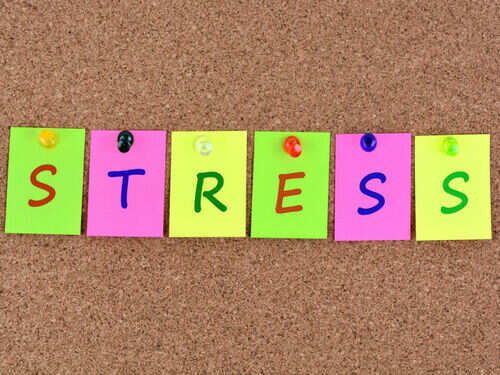I remember the first time I heard the word stress, and I was amazed at how such a thing could exist and cause so much pain. Growing up, I realized that stress is too much of a concern in little things that can be solved at once, but as we age, the stress of daily life adds up and creates a stressful environment to live in. I have seen how stress can destroy a life and how it can be hard on the lives of the people it affects.

Stress is our reaction to various external factors.
Before we get to the part about coping, we first need to understand some things about stress that are essential.
1. Stress is not always bad
Stress is the way the body reacts to a challenge. When faced with a difficult situation, there are a lot of reactions that the body goes through. Increased pulse, increased adrenaline, faster response to stimuli and among them, stress is one.
But the same stress that “stresses” us, also makes us faster and more likely to handle situations better. Stress makes us do our best. So it’s not always a bad thing.
2. Stress varies from person to person
Some people are inherently calmer and more composed, compared to others. Therefore, their reactions are also different. Stress levels change greatly among different people and should not be compared at any stage.
If I can deal well with a difficult situation, that does not make someone else’s stress or panic a bad thing. After all, it’s just a reaction.
3. Stress is not always a disease
There are a variety of stress-related disorders. But just because a person is prone to stress does not make him or her a patient. Stress disorders, like all other disorders, are something that cannot be confirmed unless diagnosed clinically.
Therefore, stress in daily life is as normal as it can be.
4. Stress always has a trigger
Something may not be happening right now. Sometimes the stress trigger goes back to the past, that we don’t even remember the incident. That’s because our mind is expert at suppressing information that can be distressing. But no stress ever comes without a trigger.
Stress that is positive or good for us in some way is called Eustress and the stress that makes us panic and unable to see well is distress.

There are different types of stress and they can have a different impact on everyone’s life:
1. General Stress
This is your old school, before an exam, a major day of stress. It’s so normal and so widely experienced that if you don’t experience it, people think you’re a little weird (in a good way, of course!).
General stress requires nothing more than a few deep breaths and a glass of cool water. It goes away as fast as it came.
2. Acute Stress
This is, in a way, the big brother of general stress. It’s not harmful at all, but it wears you out completely and leaves you exhausted.
This would be the stress that people experience when the workload doubles, during the end of the year or when you study for a history exam and have the math paper in hand. The situation is overloaded and the brain gets irritated and you start to sweat and panic.
Acute stress can also be dealt with by old habits, but it is best to simply let it go.
3. Acute episodic stress
This is one of the serious guys. It’s one thing to be stressed out, but something is not right when a person starts working on almost everything. Even things that aren’t stressful. So whether it’s your wedding day or your day out, there’s something you’ll be stressed about.
For people with episodic stress, things get out of control very quickly. Calm turns to chaos in the blink of an eye. They take on more than they can chew, and when it comes down to it, they’re about to explode.
Patients with episodic stress are often studied for crisis management purposes just to get a sense of how the masses will respond to a situation.
4. Chronic Stress
While acute stress can be exciting and thrilling, chronic stress is not. It is the annoying stress that wears people down day after day, year after year. Chronic stress destroys bodies, minds, and lives. It wreaks havoc on lives.
If you can imagine what stress must be like in a war situation, then I assure you that you can imagine what chronic stress is like. It requires medical help and proper treatment.
While chronic stress needs proper medical attention, other forms of stress can be treated. One can even cultivate a habit of dealing with it.


